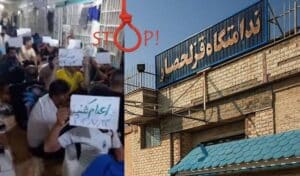Historical perspective
Since Ayatollah Khomeini established the governing system of velayat-e faqih, or “guardianship of the jurist” in the wake of Iran’s 1979 revolution, the country has generally been considered the world’s only theocracy.
Repression has been a pillar of the regime throughout the past four decades and it has not spared any sector of the society, including religious minorities. Tehran has systematically engaged in repression of minority religious communities and by altering laws, government practices, and the content of state media has tried to suppress the Evangelical “house church” movement, as well as other religious minorities providing Iranians with options for religious expression which are not state imposed.
In 1989, less than ten years after the founding of the Regime in Iran, authorities forced the closure of the Iranian Bible Society, effectively halting mass distribution of Christian and Jewish religious texts among Iranians for the first time in nearly 200 years. This was one of several measures taken in that first decade to reinforce the theocratic rule written into the country’s new Constitution, which recognized three pre-Islamic religions as being legal to practice in the Regime in Iran, but only within communities where that practice was already established before the revolution.
The impact of the Islamic republic’s theocracy on faith
Escalating repression of religious minorities and their leaders
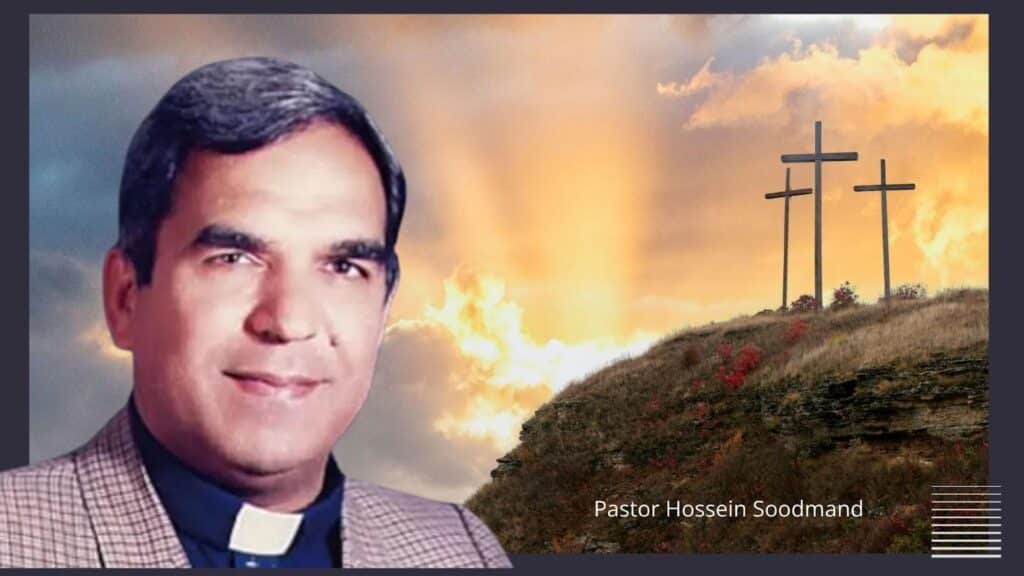
According to the Iranian regime’s law, Iranian Muslims are forbidden from converting to Judaism, Christianity, or Zoroastrianism, and certainly from converting to any other religion that is not officially recognized by the theocratic system. In 1990 the authorities sought to deliver a stronger message to the spiritually adventurous, carrying out the execution of Reverend Hossein Soodmand after he was accused of apostasy, proselytism, and operating an illegal church and Christian bookstore.
Soodmand’s death actually came three years before lawmakers formally made apostasy a capital offense on its own. Around the same time, pressure was mounting even for officially recognized minority religious communities, as authorities compelled non-Muslim small business owners to place notices of their religious affiliation in their windows, while church leaders were compelled to sign statements vowing not to share their faith with others.
Stories of resistance and martyrdom
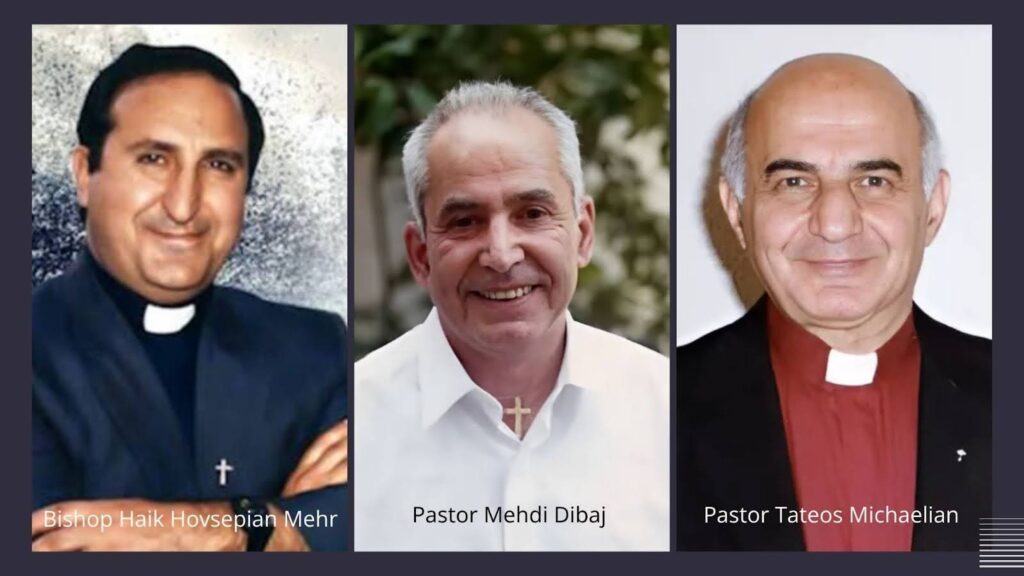
In December 1993, a Christian priest named Mehdi Dibaj was serving the ninth year of a prison sentence for “insulting Islam” through his alleged promotion of Christianity, when authorities abruptly added charges to his file and sentenced him to death. This move to implement the recent change to the penal code came more than four decades after Dibaj became an “apostate” by converting from Islam.
As authorities made arrangements for his execution, the priest’s story became a cause celebre among Iranian Christians and human rights defenders throughout the world. The case’s notoriety was fueled in large part by the efforts of a friend and fellow priest, Haik Hovsepian-Mehr, who led the Iranian branch of the Assemblies of God. Hovsepian-Mehr courageously provided Dibaj defense and it was published in The Times (London).
“When God’s love and salvation have been revealed to a person, he cannot keep silent but must share the good news with others so that they too may be saved… For nine years, they have kept me in prison, two of those years in solitary confinement in a dark cell one meter by one meter, without light or fresh air. They have tortured me, mocked me, and tried to force me to deny my faith. But God has been my strength and my shield. He has given me joy in the midst of suffering and peace in the midst of storm.”
Under international pressure, the clerical regime released Dibaj in January 1994, but only two days after his release, Hovsepian-Mehr went missing, and approximately ten days after that, his body was found, stabbed 27 times.
Hovsepian-Mehr was succeeded as leader of the Assemblies of God by Tateos Michaelian, only for him to also be killed soon after. It was widely understood that both men had been killed by regime authorities or state-supported militants as part of a pattern of repression targeting their church and their community for ministering to Farsi-speakers, for refusing to affirm that they had experienced no persecution under the mullahs’ rule, and for raising awareness about plans to execute Dibaj.That understanding of the situation was reinforced later the same year when Dibaj himself was found murdered, as well, just five months after escaping the gallows with help from his friends and fellow worshippers. And in 1994, the 77-year-old sexton of a Tehran synagogue, Feysollah Mechabad, was killed under equally suspicious circumstances, thus reinforcing the message that adherents to all minority religions could face the threat of persecution, even if their faith long preceded the Islamic revolution.
Baha’i persecution, repressing a homegrown faith
The paranoia underlying Iran’s religious repression is especially evident in its treatment of the Baha’i community—the largest non-Muslim religious minority in the country.
The Baha’i faith, founded in Iran in the 19th century, emphasizes the unity of all religions, the equality of men and women, and the oneness of humanity. It has no clergy and is organized through elected spiritual assemblies. Because its principles directly challenge the authoritarian structure and religious monopoly claimed by the Islamic Republic, the regime labels Baha’is as heretics and treats them as enemies of the state.Although the Baha’i faith originated in Iran, the Islamic Republic refuses to recognize it as a legitimate religion. Baha’is are denied citizenship rights, barred from higher education, banned from public sector jobs, and systematically monitored and harassed.
“Mona Mahmoudnejad, a 17-year-old Baha’i girl, was executed by the Iranian regime in 1983 in Shiraz—alongside nine other Baha’i women—for teaching moral education to children and refusing to renounce her faith. Today, she stands as a symbol of peaceful resistance against religious oppression.”
In reality, Iranian authorities tend to accelerate their repression of religious minorities in particular at the same time as they are accelerating their repression of the population as a whole. Accordingly, reports of arrest and prosecution for charges such as “blasphemy,” “insulting the prophet,” and “enmity against God” have accumulated at a faster rate in the years since Iranians from all walks of life staged nationwide protests following the morality police killing of Mahsa Amini.
That uprising was largely focused on women’s rights issues, and women hold prominence of place in Baha’i communities, often on account of their role as educators. The Islamic Republic systematically bars Baha’i children from accessing formal education, leading the community itself to provide self-built alternatives, which in turn has become another target of the regime’s crackdowns.
The latest estimates indicate that approximately two-thirds of that population now comprises women. The trend has become so noteworthy that in January, several United Nations human rights experts issued a public statement calling attention to the plight of Baha’i women and urging international action to confront Tehran’s human rights abuses and assaults on religious freedom.
The regime responded by immediately imposing prison sentences on ten more Baha’i women. The following month, simultaneous raids were conducted on the homes of at least 14 more practitioners of the same faith, leaving no doubt as to authorities’ aim of terrorizing the entire community into conversion or compliance.
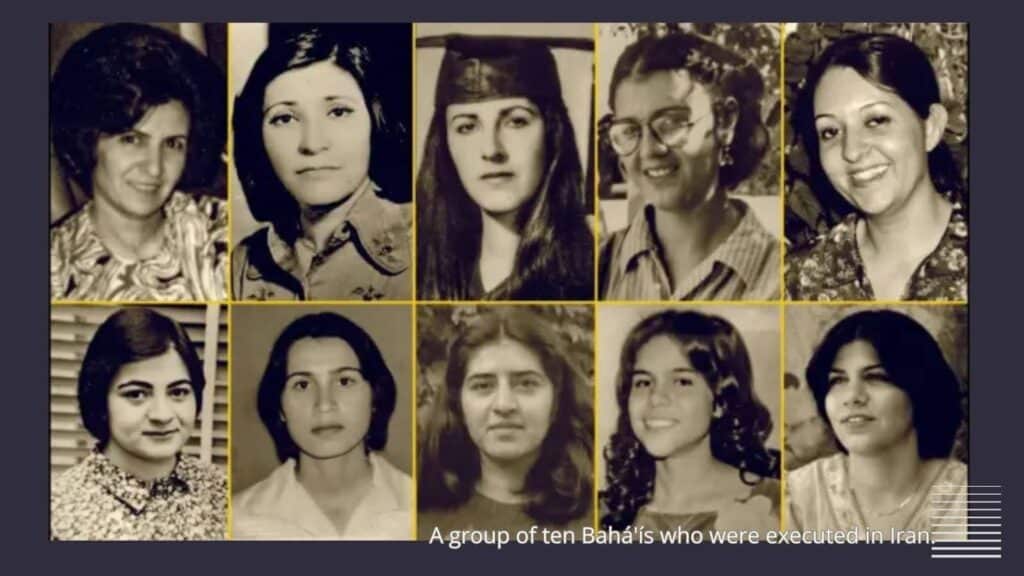
Current status of religious rights in Iran
There is no shortage of penalties that the regime is keen to apply to non-Muslims. In fact, some of those lesser penalties may even be precursors to fatal outcomes, either as a consequence of poor prison conditions and systematic abuse, or because religiously-motivated arrests provided authorities with another pretense to execute a prisoner for vaguely defined offenses like “spreading corruption on Earth.”
While the most conservative estimates suggest that there are between 300,000 and 800,000 practicing Christians in Iran today, it is difficult to assess the true number when the long history of their persecution compels many to practice in secret. Many organizations place their estimates at over a million, and some say that the number has climbed as high as three million.Conversely, adherence to Islam is contracting as Iranians collectively push back against efforts to enforce religious ideology with the power of the state. More Iranians see themselves as calling out the regime’s hypocrisy in overlooking a well-known Quranic passage that says:
“There is no coercion in religion.”
Verein Welle: defending freedom of faith
At Verein Welle, we believe that no one should face imprisonment, torture, or execution simply for their beliefs. We actively expose the persecution of religious minorities in Iran and amplify the voices of those silenced by the regime.
Welle has revealed multiple cases of arrested Christians, Baha’is, and Jews whose detentions were hidden from public view. We monitor reports from inside Iran and coordinate international responses to prevent disappearances and executions.A key example is Ebrahim Firuzi, a Christian convert who was imprisoned for years. Welle initiated and supported a campaign for his release, spreading awareness across social media, international outlets, and advocacy networks. His case stands as one of many where international pressure, truth-telling, and solidarity can save lives.
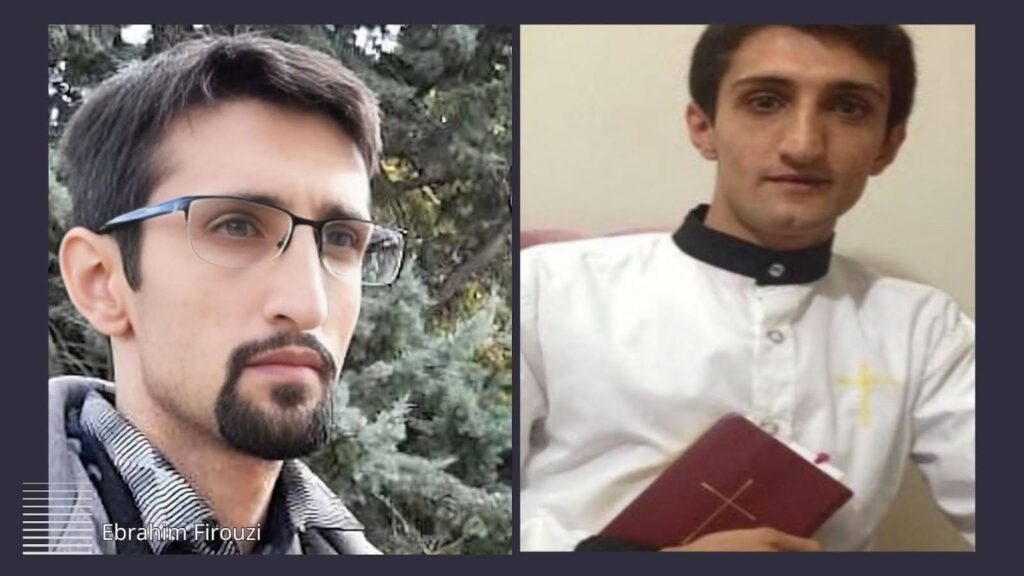
Through our campaigns, publications, and advocacy, we aim to bring light into the darkest corners of Iran’s prisons—and hope to those who refuse to renounce their faith.
Donate now
Support Verein Welle’s work in defending religious freedom, uncovering the truth, and saving lives. Your donation helps us support prisoners of conscience, fund international advocacy, and ensure no voice is forgotten.
How to get involved
The struggle for religious freedom in Iran is far from over, but solidarity from the international community remains a critical source of hope for those persecuted inside the country.
Join the Movement
Support religious minorities in Iran by:
- Sharing stories like those of Dibaj, Hovsepian-Mehr, and Baha’i women
- Donating to NGOs supporting imprisoned or displaced minority families
Volunteering with organizations that promote human rights in Iran
Donate now
Every contribution helps us reveal hidden stories, support survivors, and resist religious persecution in Iran. Stand with faith communities and help defend human dignity.



